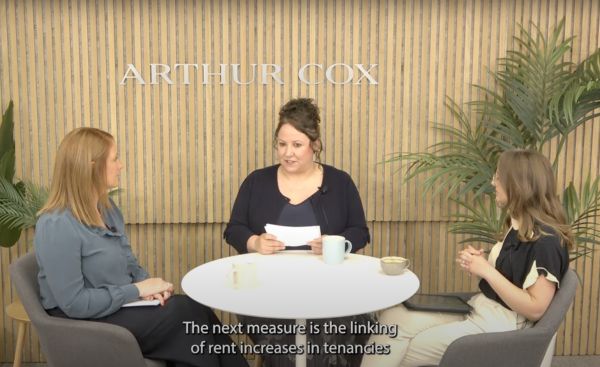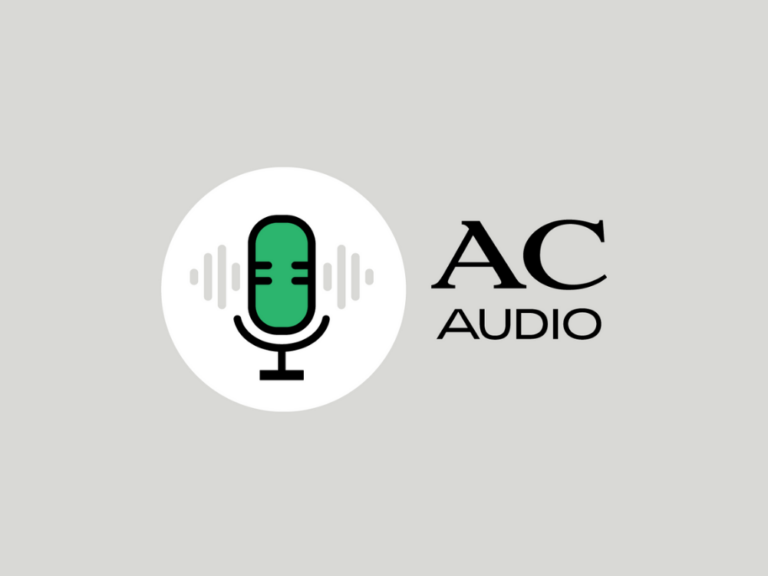
Government Proposals for Insurance Reform
In this audio briefing, Catherine Wolfe, an associate in the Insurance and Reinsurance team, looks at the new Government’s extensive agenda for insurance reform.
Transcript
On 26 June 2020, each of the three coalition parties ratified the Programme for Government entitled “Our-Shared Future”. The Programme contains a section dedicated entirely to insurance reform, which focuses on three key areas: (i) tackling the rising cost of insurance; (ii) addressing insurance fraud and (iii) fostering greater competition in the Irish insurance market.
Hi, I am Catherine Wolfe, an associate in the Insurance and Reinsurance team in Arthur Cox. In this audio briefing, I will be looking at the new Government’s extensive agenda for insurance reform.
Proposals to tackle rising insurance costs
The continuous cycle of high-claims pay-outs and rising insurance premiums have been described as the “defining issue” in the Irish general insurance market.[1] In particular, motor, public liability and employer liability insurance are areas that have resulted in substantial costs for business owners and consumers alike. So, how does the Government intend to tackle this issue?
The recently published Programme for Government proposes a series of legislative reforms, which range from regulating claims management companies to enhancing and reforming the role of the Personal Injuries Assessment Board. There are also proposals to amend the Occupiers Liability Act 1995 and the Civil Liability Act 1961 to strengthen the legal effect of waivers and notices and thereby increase protections for consumers, businesses, sporting clubs and community groups. As well as strengthening the provisions of the Solicitors (Advertising) Regulations 2019, the government is also considering the need for a constitutional amendment to enable the Oireachtas to establish guidelines on award levels.
Insurance Fraud
In addition to these legislative reforms, the Programme contains a number of proposals to clamp down on insurance fraud. In its 2017 Report on the Cost of Motor Insurance, the Department of Finance’s Cost of Insurance Working Group considered stakeholder recommendations for a privately funded, specialised and dedicated insurance fraud unit within An Garda Síochána. Although the current government proposals do not go quite this far, the Programme does call for an expansion of the Garda Economic Crime Bureau, which deals with insurance fraud. The Government also anticipates that training and support will be provided to Gardaí in every division to ensure that the necessary skills and expertise for carrying out fraud investigations are diffuse across the State.
Other proposals to tackle fraudulent claims include:
- placing perjury on a statutory footing, thereby making the offence easier to prosecute;
- ensuring that fraudulent claims are forwarded to the Director of Public Prosecution;
- publishing insurance fraud data; and
- exploring the feasibility of obliging fraudulent claimants to pay the for defendants’ legal costs.
Market Competition
To foster greater competition and improve transparency in the industry the Program calls for work to be undertaken to remove dual pricing from the market. The Government has also supports the Central Bank’s recommendation that the National Claims Information Database to be urgently expanded to include employer liability and public liability insurance, so that claims trends in these sectors can be identified and better understood. In an effort to help deter anti-competitive behaviour in the market the Competition and Consumer Protection Commission are also to be afforded enhanced powers of enforcement.
COVID-19
In relation to the impact that COVID-19 has had on the Irish economy, the Programme discusses the role that the insurance industry can play in shaping Ireland’s post-pandemic recovery. In this regard, the government intends to work to protect customers during and after the COVID-19 crisis, with particular emphasis on business interruption insurance, travel insurance and rebates for motor insurance customers. The Programme also makes it clear that the government supports the Central Bank’s direction on compensating business with disruption cover for infectious diseases. Finally, the government is exploring the feasibility of a group insurance scheme to support Ireland’s tourism sector, which has been badly affected by COVID-19.
So, who is responsible for overseeing these reforms?
An earlier draft of the Programme stated that a dedicated cabinet sub-committee would be established to deal urgently with insurance reform. However, this proposal was dropped from the final text of the Programme with the responsibility for prioritising the proposed reforms being assumed by a Cabinet Committee on Economic Recovery and Investment, as part of a wider agenda for economic renewal post-COVID-19.
I hope you found this audio briefing helpful. If you would like further information on any of the proposed reforms or issues mentioned in this audio briefing, please feel free to contact a member of the Arthur Cox Insurance and Reinsurance team or your usual Arthur Cox contact.
Podcasts
The Arthur Cox podcast series ‘AC Audio’ is a collection of knowledge and insights across a range of practice areas within the firm. |
 |
 |
 |
Disclaimer: The contents of this podcast are to assist access to information and do not constitute legal or other advice. Specific advice should be sought in relation to specific cases. If you would like more information on this topic, please contact a member of our team or your usual Arthur Cox contact.
[1] Kevin Thompson, CEO of RSA Insurance Ireland and former CEO of Insurance Ireland: https://www.insuranceireland.eu/news-and-publications/insurance-claims-cost-reforms-incomplete-two-years-on-from-the-cost-of-insurance-working-group-report



